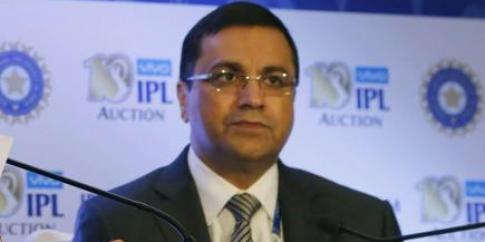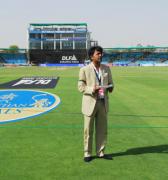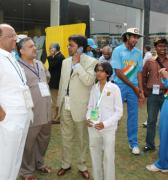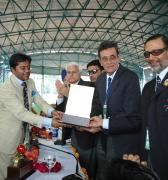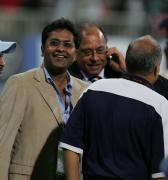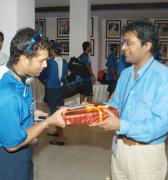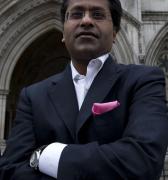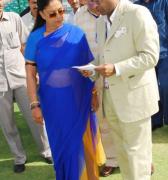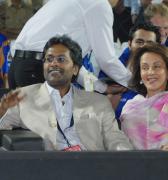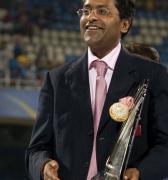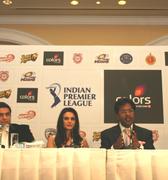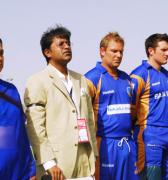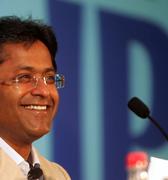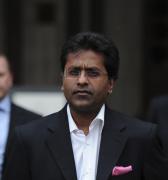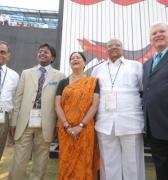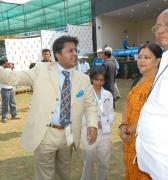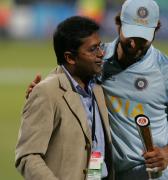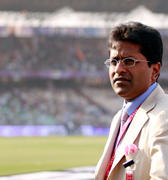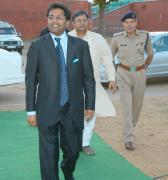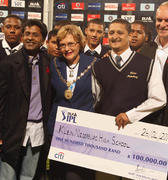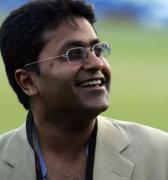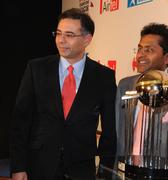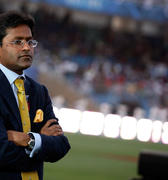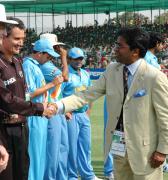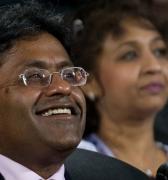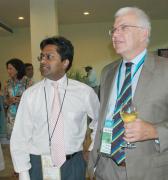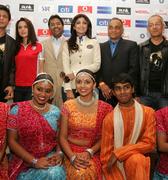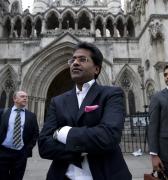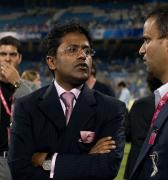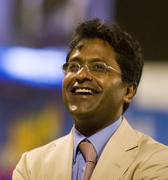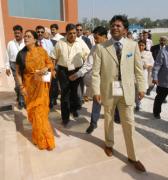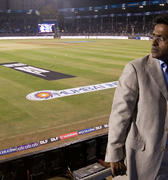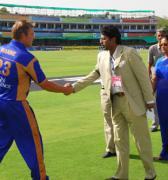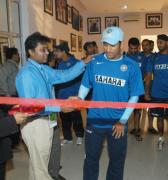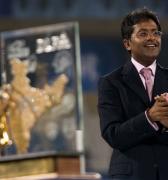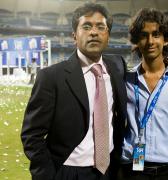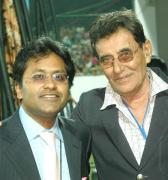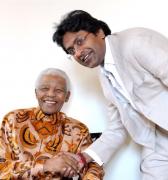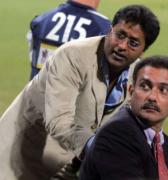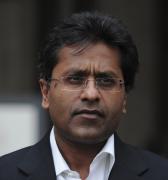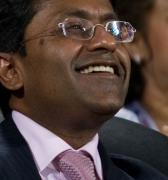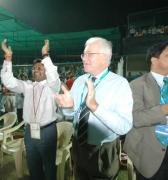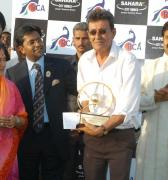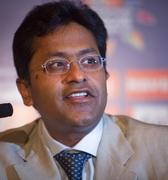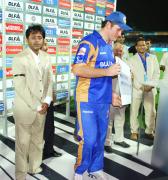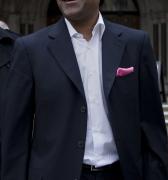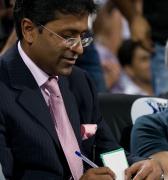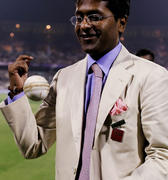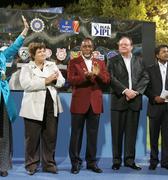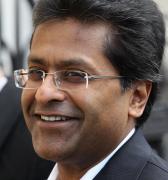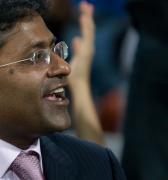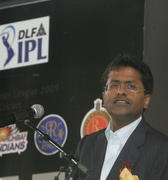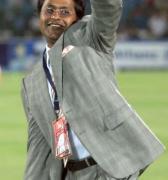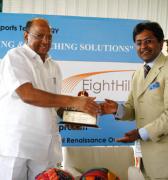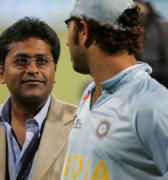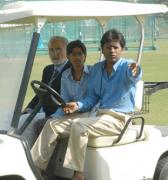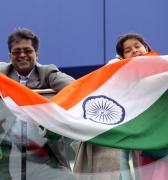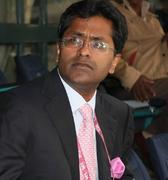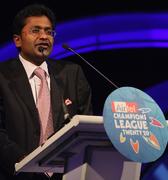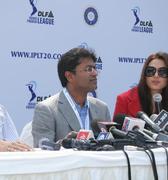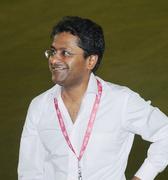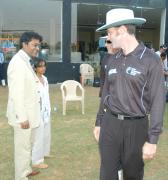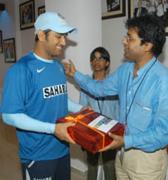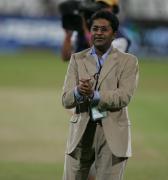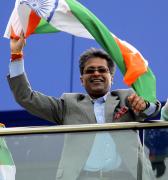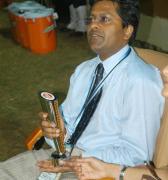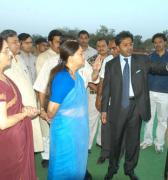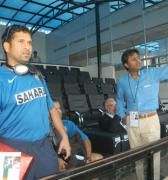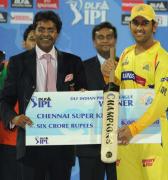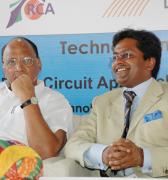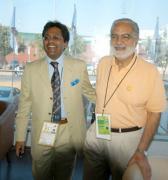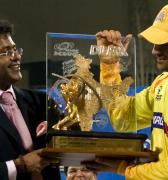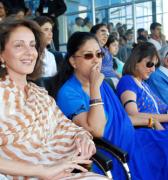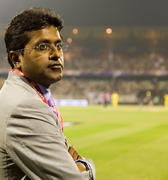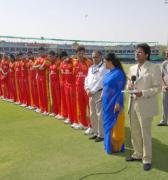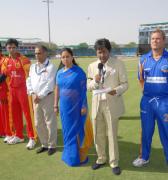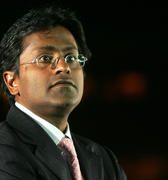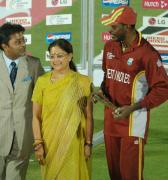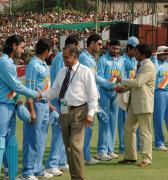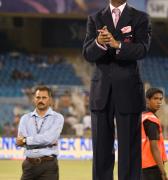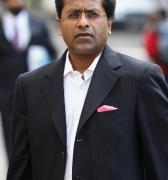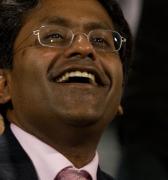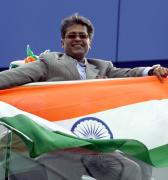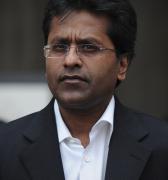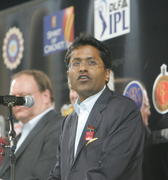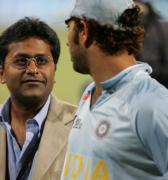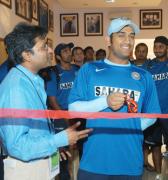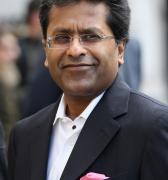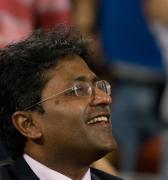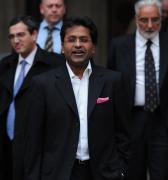No need for CEO, cooling off period: Suggestions from BCCI affiliates
BCCI affiliates have suggested that the CEO post should be done away with, because there’s no need for it
A Board of Control for Cricket in India affiliate has suggested that the BCCI’s Chief Executive Officer (CEO) post should be done away with, because there’s “no need for it”. The BCCI and certain state associations have also opposed the cooling-off period for the office-bearers, while mentioning that the “balance of powers” should never be tilted towards professional appointees, for it devalues the authority of the elected officials. The board has called for an Apex Council rejig as well and reiterated its stand on not downgrading the membership of any existing Full Member.
The BCCI and the state associations put forward their suggestions with regard to the draft constitution prepared by the Committee of Administrators (CoA) in accordance with the Lodha Committee report, the majority of which was accepted by the Supreme Court in its July 18, 2016 order. A year-and-a-half down the line, the matter is still sub judice, with the next hearing scheduled on February 23. The BCCI has had been defiant on accepting the Lodha reforms in toto.
The CoA, however, has submitted its sixth status report before the court, incorporating the suggestions made by the BCCI office-bearers and certain state associations, in accordance with the apex court’s September 21, 2017 order. The court had asked the CoA to prepare a draft constitution for the BCCI, incorporating all Lodha Committee recommendations. It then directed the cricket board and its state affiliates, who objected to certain clauses in the Lodha report, to submit their suggestions on the proposed constitution.
“There is no need for the post of a CEO in BCCI,” the Saurashtra Cricket Association has suggested, adding that cooling-off, the 70-year age limit and the duration of tenure for office-bearers “should neither apply to BCCI nor member Associations”.
The BCCI acting secretary Amitabh Choudhary, the National Cricket Club and the Himachal Pradesh Cricket Association elaborated on the cooling-off period issue, suggesting that there “should not be any provision” for it and an office-bearer should be allowed to retain his position, subject to re-election, after his three-year term is over. The Lodha Committee recommendations said: “The maximum term of an office-bearer will be three years. A maximum of three such terms can be undertaken by the office-bearer, but with a cooling-off period of three years after each such term.”
CK Khanna, acting president of the BCCI, and treasurer Anirudh Chaudhry, along with the Tamil Nadu Cricket Association and the Karnataka State Cricket Association, have suggested that “eradication” of the cricket board secretary’s authority to execute contracts and the treasurer’s power to sign cheques on behalf of the BCCI “should be removed”.
Since its inception in 1926 followed by its affiliation two years later, the BCCI’s day-to-day functioning had been looked after by its secretary. Rahul Johri, however, took charge as the BCCI CEO in April 2016, as then cricket board president Shashank Manohar decided to bring in professional expertise. While the BCCI office-bearers have welcomed the introduction of professional management, they stressed upon allowing the board to function through its elected office-bearers and various committees.
The BCCI and the state bodies have also suggested that the cricket board membership “cannot be restricted to states”, as it would be unfair to ignore the contribution made by non-state associations to the development of Indian cricket. They also didn’t favour the proposal to grant full membership “right away” to certain states where “cricket is still at nascent stages”. Khanna and Chaudhry said state associations shouldn’t be required to grant automatic membership to former players hailing from the state, citing the Supreme Court’s July 18, 2016 order that didn’t impose “any obligation” upon the state bodies. The HPCA has suggested that simultaneously holding office in state association and the BCCI shouldn’t be construed as conflict of interest.
A Board of Control for Cricket in India affiliate has suggested that the BCCI’s Chief Executive Officer (CEO) post should be done away with, because there’s “no need for it”. The BCCI and certain state associations have also opposed the cooling-off period for the office-bearers, while mentioning that the “balance of powers” should never be tilted towards professional appointees, for it devalues the authority of the elected officials. The board has called for an Apex Council rejig as well and reiterated its stand on not downgrading the membership of any existing Full Member.
The BCCI and the state associations put forward their suggestions with regard to the draft constitution prepared by the Committee of Administrators (CoA) in accordance with the Lodha Committee report, the majority of which was accepted by the Supreme Court in its July 18, 2016 order. A year-and-a-half down the line, the matter is still sub judice, with the next hearing scheduled on February 23. The BCCI has had been defiant on accepting the Lodha reforms in toto.
The CoA, however, has submitted its sixth status report before the court, incorporating the suggestions made by the BCCI office-bearers and certain state associations, in accordance with the apex court’s September 21, 2017 order. The court had asked the CoA to prepare a draft constitution for the BCCI, incorporating all Lodha Committee recommendations. It then directed the cricket board and its state affiliates, who objected to certain clauses in the Lodha report, to submit their suggestions on the proposed constitution.
“There is no need for the post of a CEO in BCCI,” the Saurashtra Cricket Association has suggested, adding that cooling-off, the 70-year age limit and the duration of tenure for office-bearers “should neither apply to BCCI nor member Associations”.
The BCCI acting secretary Amitabh Choudhary, the National Cricket Club and the Himachal Pradesh Cricket Association elaborated on the cooling-off period issue, suggesting that there “should not be any provision” for it and an office-bearer should be allowed to retain his position, subject to re-election, after his three-year term is over. The Lodha Committee recommendations said: “The maximum term of an office-bearer will be three years. A maximum of three such terms can be undertaken by the office-bearer, but with a cooling-off period of three years after each such term.”
CK Khanna, acting president of the BCCI, and treasurer Anirudh Chaudhry, along with the Tamil Nadu Cricket Association and the Karnataka State Cricket Association, have suggested that “eradication” of the cricket board secretary’s authority to execute contracts and the treasurer’s power to sign cheques on behalf of the BCCI “should be removed”.
Since its inception in 1926 followed by its affiliation two years later, the BCCI’s day-to-day functioning had been looked after by its secretary. Rahul Johri, however, took charge as the BCCI CEO in April 2016, as then cricket board president Shashank Manohar decided to bring in professional expertise. While the BCCI office-bearers have welcomed the introduction of professional management, they stressed upon allowing the board to function through its elected office-bearers and various committees.
The BCCI and the state bodies have also suggested that the cricket board membership “cannot be restricted to states”, as it would be unfair to ignore the contribution made by non-state associations to the development of Indian cricket. They also didn’t favour the proposal to grant full membership “right away” to certain states where “cricket is still at nascent stages”. Khanna and Chaudhry said state associations shouldn’t be required to grant automatic membership to former players hailing from the state, citing the Supreme Court’s July 18, 2016 order that didn’t impose “any obligation” upon the state bodies. The HPCA has suggested that simultaneously holding office in state association and the BCCI shouldn’t be construed as conflict of interest.
(Courtesy: The Indian Express)








